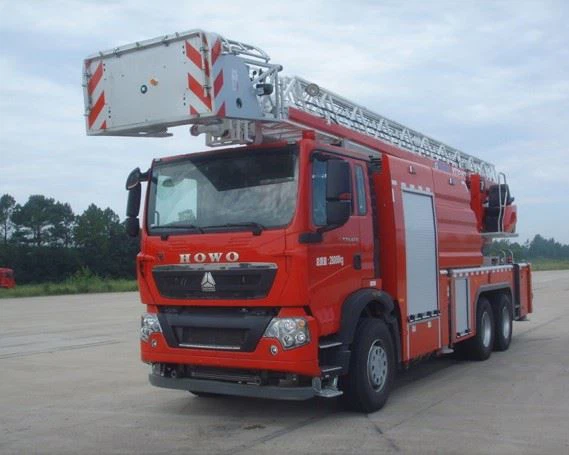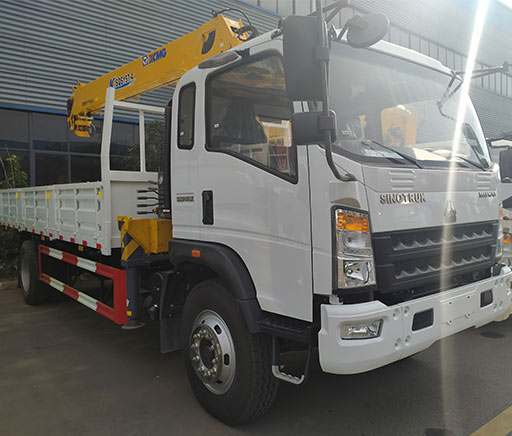What is a 1 Ton Truck: Everything You Need to Know

Introduction
A 1 ton truck is a versatile vehicle that has gained immense popularity among both individuals and businesses alike. Known for its robust construction and impressive payload capacity, it plays an essential role in various industries, such as construction, landscaping, and transportation services. This article will cover everything you need to know about 1 ton trucks, including their specifications, common uses, advantages, comparisons with other trucks, and practical tips for purchasing and maintaining one. Whether you’re considering a 1 ton truck for personal or commercial use, this comprehensive guide has you covered.
Understanding Capacity and Weight Ratings
What Does “1 Ton” Mean?
The term “1 ton” refers to the vehicle’s payload capacity, which is the maximum weight the truck can safely carry, including cargo, passengers, and accessories. In terms of weight, 1 ton equals 2,000 pounds. However, it is essential to note that the gross vehicle weight rating (GVWR) includes the truck’s own weight plus the payload. A typical 1 ton truck might have a GVWR ranging from 10,000 to 14,000 pounds, making it capable of handling substantial loads.
Understanding Ratings: GVWR vs. Payload Capacity
The two key metrics to understand when discussing the capacity of a truck are the Gross Vehicle Weight Rating (GVWR) and payload capacity:
- GVWR: The maximum weight the truck is rated to safely handle, including the truck itself and the entire load.
- Payload Capacity: The difference between the GVWR and the truck’s curb weight, indicating how much cargo can be safely transported.
| Type | GVWR (lbs) | Typical Payload Capacity (lbs) |
|---|---|---|
| 1 Ton Truck | 10,000 – 14,000 | 3,000 – 7,000 |
| Half-Ton Truck | 6,000 – 8,000 | 1,000 – 2,000 |
| Three-Quarter Ton Truck | 8,500 – 10,000 | 2,000 – 3,500 |
Popular Models of 1 Ton Trucks
Many manufacturers offer 1 ton truck models equipped with varying features to meet different needs. Below are some popular options:
Ford F-350 Super Duty
The Ford F-350 is renowned for its excellent towing capacity, solid construction, and advanced technology, making it ideal for heavy-duty jobs and off-road conditions.
Chevrolet Silverado 3500HD
The Chevrolet Silverado 3500HD features a powerful engine lineup and comfortable interiors, making it a great choice for both work and leisure.
RAM 3500
With impressive towing capabilities and luxurious interior options, the RAM 3500 is a favorite among truck enthusiasts.
GMC Sierra 3500HD
Similar to its Chevrolet counterpart, the GMC Sierra 3500HD offers a blend of performance and style, catering to various customer preferences.
Common Uses of 1 Ton Trucks
1 ton trucks are widely used across multiple industries due to their balance of power and payload capacity. Here are some of the common applications:
Construction and Heavy-Duty Work
1 ton trucks are frequently used on construction sites, where they can transport materials like lumber, steel, and equipment safely and efficiently. Their towing capacity allows them to haul trailers and heavy machinery as needed.
Landscaping and Lawn Care
Landscapers often rely on 1 ton trucks to transport soil, plants, and landscaping materials. Their size provides enough space for tools and equipment, which is essential for landscaping businesses.
Towing Trailers
Whether for recreational use, such as towing RVs or boats, or for professional hauling of equipment, 1 ton trucks provide excellent towing capabilities that accommodate various trailer types.
Transporting Goods and Services

Businesses that require transportation of goods or services can utilize 1 ton trucks for deliveries, moving equipment, and providing mobile services. Their durability makes them a good investment for small business operations.
Advantages of 1 Ton Trucks
Investing in a 1 ton truck comes with several advantages. Here are some of the key benefits:

1. High Payload Capacity
With the ability to carry up to 7,000 pounds in cargo, 1 ton trucks can handle large loads, making them suitable for various applications.
2. Towing Capability
With robust engines and reinforced frames, 1 ton trucks are designed to tow heavy trailers, making them suitable for recreational and professional uses alike.
3. Versatility
1 ton trucks are versatile and can adapt to many tasks, from hauling construction materials to transporting family and friends.
4. Off-Road Capability
Many 1 ton trucks come with off-road options, allowing them to maneuver through rough terrains and challenging conditions.
5. Comfort and Technology
Modern 1 ton trucks are equipped with advanced technology, comfortable seating, and plenty of cargo space, making long drives more enjoyable.
Purchasing a 1 Ton Truck
When considering the purchase of a 1 ton truck, you should evaluate several factors to ensure that you choose the right vehicle for your needs.
1. Determine Your Needs
Before making a purchase, evaluate what you will primarily use the truck for and what features are most important to you, such as towing capacity, fuel efficiency, or comfort.
2. New vs. Used
Decide whether you want to buy a new or used truck. While new trucks come with warranties and the latest technology, used trucks can save you money but may come with maintenance considerations.
3. Research Models and Features
Look into different truck models, read reviews, and compare features. Focus on aspects like engine power, technology, safety features, and interior comfort.
4. Test Drive
Always take a test drive before purchasing. This helps you assess how the truck feels and performs on the road, ensuring you will be satisfied with your choice.

5. Consider Financing Options
Explore various financing options, including loans, leases, and cash payments. Compare interest rates and terms to find the best deal for your situation.
Maintenance Tips for 1 Ton Trucks
To keep a 1 ton truck running smoothly, regular maintenance is essential. Here are some practical tips:
1. Regular Oil Changes
Change the oil every 5,000 to 7,500 miles or as recommended in the manufacturer’s manual to keep the engine healthy.
2. Tire Care
Check tire pressure monthly and inspect tread depth regularly to ensure safety and optimal fuel efficiency.
3. Brake Inspections
Ensure brakes are functioning properly by having them inspected during routine maintenance. Replace brake pads and rotors as needed to avoid costly repairs down the line.
4. Fluid Checks
Monitor coolant, transmission fluid, and brake fluid levels regularly to prevent overheating and other mechanical issues.
5. Regular Wash and Wax
Keep the truck clean and waxed to protect its paint and prevent rust formation, especially if the truck is frequently exposed to harsh environments.
Frequently Asked Questions (FAQ)
1. What is the difference between a 1 ton truck and a half-ton truck?
The primary difference lies in the payload capacities. A half-ton truck typically has a payload capacity of 1,000 to 2,000 pounds, while a 1 ton truck can carry 3,000 to 7,000 pounds.
2. Can a 1 ton truck be used for daily driving?
Yes, 1 ton trucks can be used for daily commuting. However, consider their size, fuel efficiency, and maneuverability in urban areas when making your choice.
3. How much fuel does a 1 ton truck consume?
Fuel consumption varies based on factors like engine size, load, and driving conditions. Typically, a 1 ton truck achieves between 10 to 20 miles per gallon.
4. Are 1 ton trucks good for towing?
Yes, 1 ton trucks are excellent for towing due to their heavy-duty construction and powerful engines, allowing them to safely tow trailers and other heavy loads.
5. How long can I expect a 1 ton truck to last?
With proper maintenance, a well-built 1 ton truck can last 200,000 miles or more, depending on usage and care.
6. What are the best brands for 1 ton trucks?
Some of the best brands for 1 ton trucks include Ford, Chevrolet, RAM, and GMC, known for their reliability, performance, and wide range of features.
